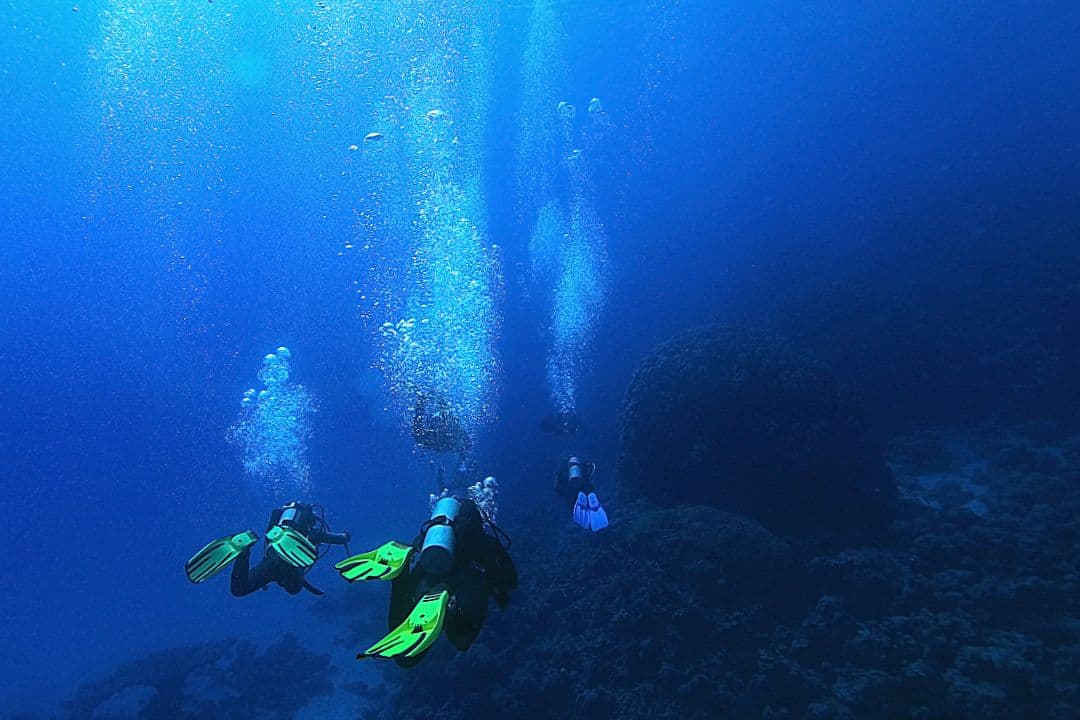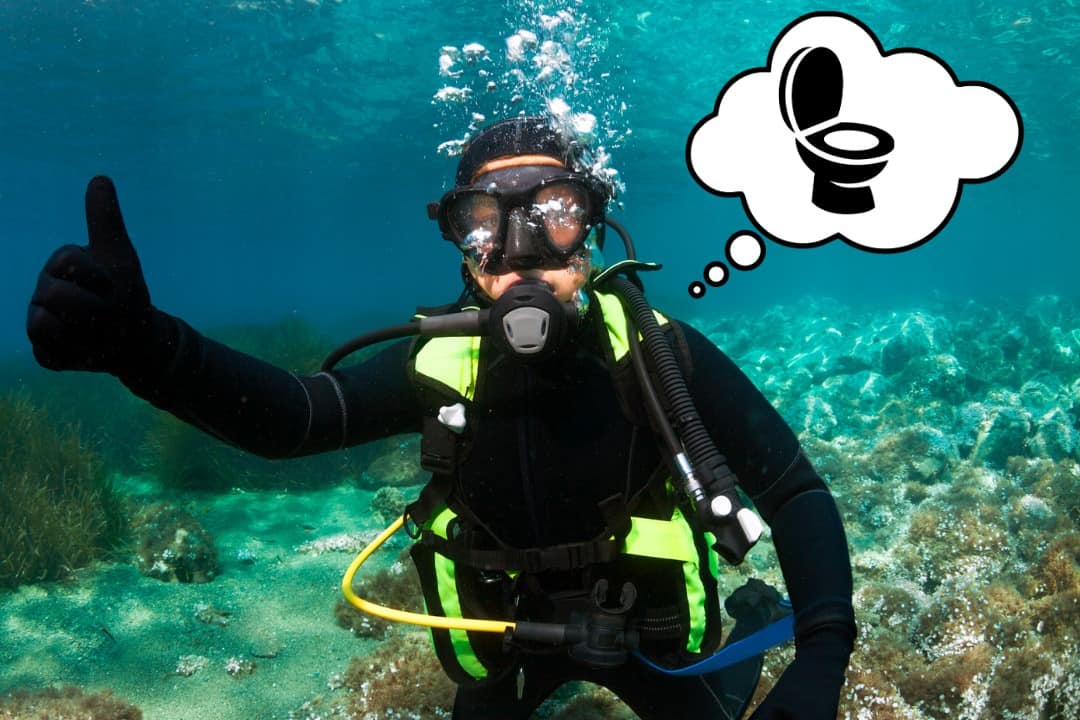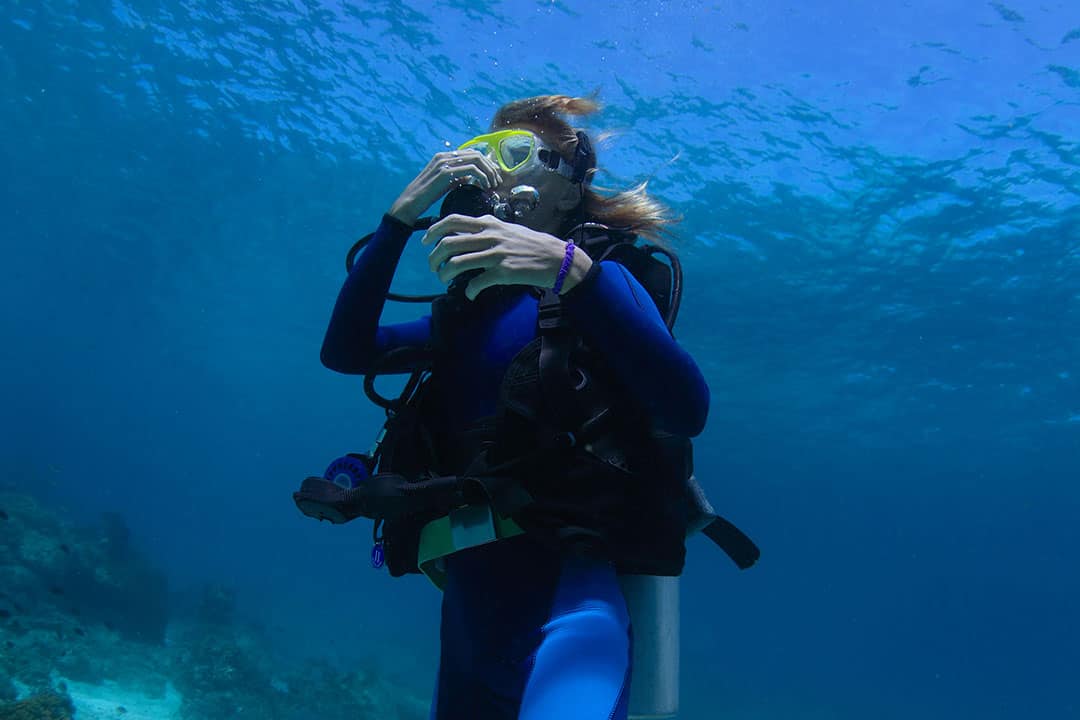Scuba diving can be the best activity you will ever experience.
Enjoying the warm clear waters of a tropical reef swarming with colorful fish or stepping back in time in an old ship wreck are experiences we will always remember.
Many of us will even plan our vacations around scuba diving. Even on vacation there are reasons you should not scuba dive.
We are going to explore some the reasons you should not do a scuba dive. Some of these apply to potential new divers and others to the experience diver.
We are going to explore 6 reasons you should not scuba dive. You should only dive if you are certified or are diving with an instructor.
There are some medical reasons as well such as when your doctor tells you not to, you are dehydrated, have a hangover or diving with a cold. Also, if you are not comfortable attempting the dive.
Some reasons why you should not scuba dive are:
1: You Should Not Scuba Dive If Your Doctor Tells You Not Too
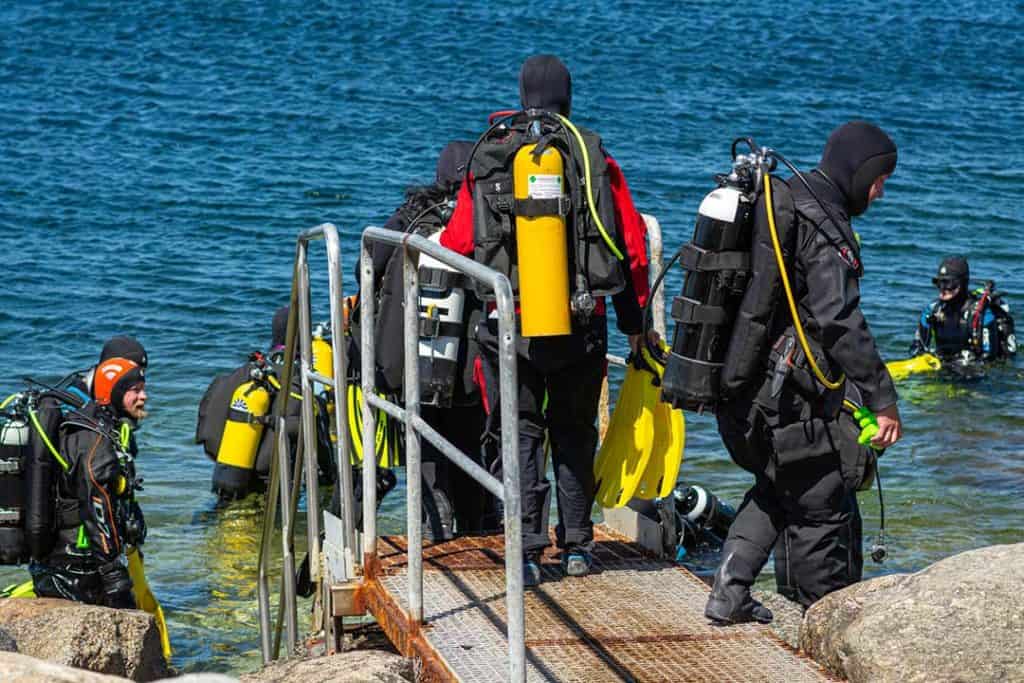
Before you start any training, the instructor will have you complete a health questionnaire. Such as this one from PADI, Depending on your answers and the location you may need to have a doctor provide an approval for you to dive.
This is something your primary care physician can do for you, often from your recent medical records and without an additional examination.
There are references available to your doctor for them to make a proper evaluation. Do not be overly concern if the questionnaire directs you to get a medical approval.
Many of the questions are broad and just because you answer requires an approval does not mean you will not get it.
It is also good for divers to review the questionnaire yearly and contact their doctor if necessary.
2: You Should Not Scuba Dive If You Are Not Certified.
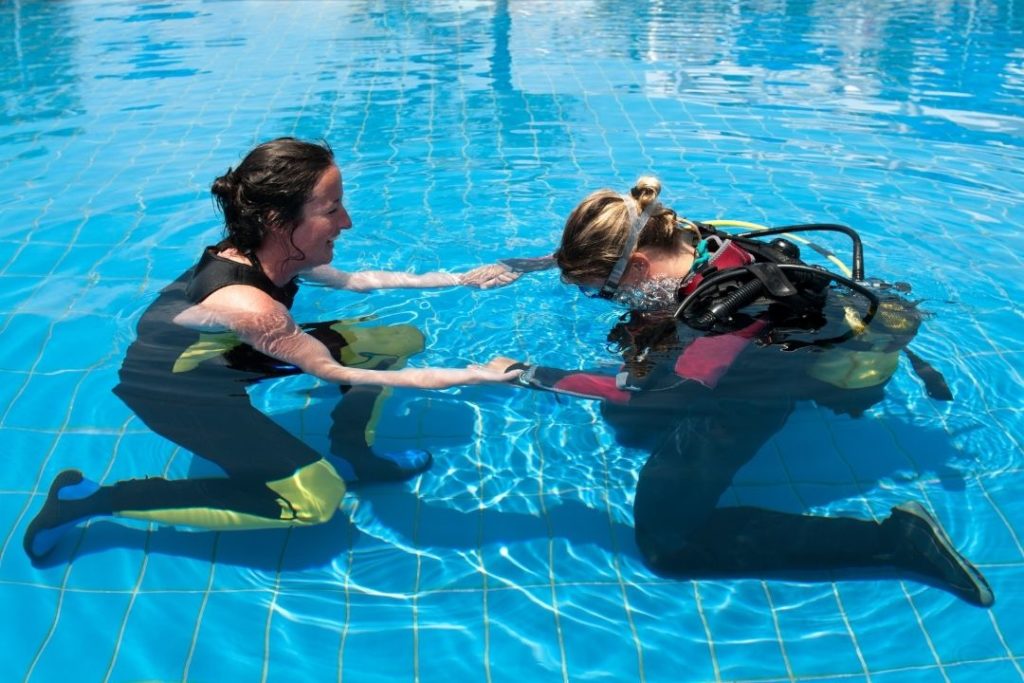
You should not scuba dive until you start a certification course or are doing a try scuba program with an instructor.
If you are not a scuba diver but want to try it, do not try to convince your friend or relative to teach you. Unless they are an instructor.
Scuba diving is a very safe sport, however, that is because divers have learned certain skills, and been trained to understand and manage the risk involved.
You can easily find yourself in a very dangerous, even fatal situation, if not properly trained.
Instructors have the knowledge and training needed to teach diving to students. They also follow lessons that insure no critical information or skill is skipped.
There are some conditions where additional certifications may be needed. Divers wanting to enter an overhead environment, such as a cavern or a wreck, or a cave will need to be certified to do so.
Wreck diving and cavern diving certifications are fairly easy to accomplish. However, cave diving certification requires a great deal of experience and training.
3: Do Not Dive If You Are Dehydrated
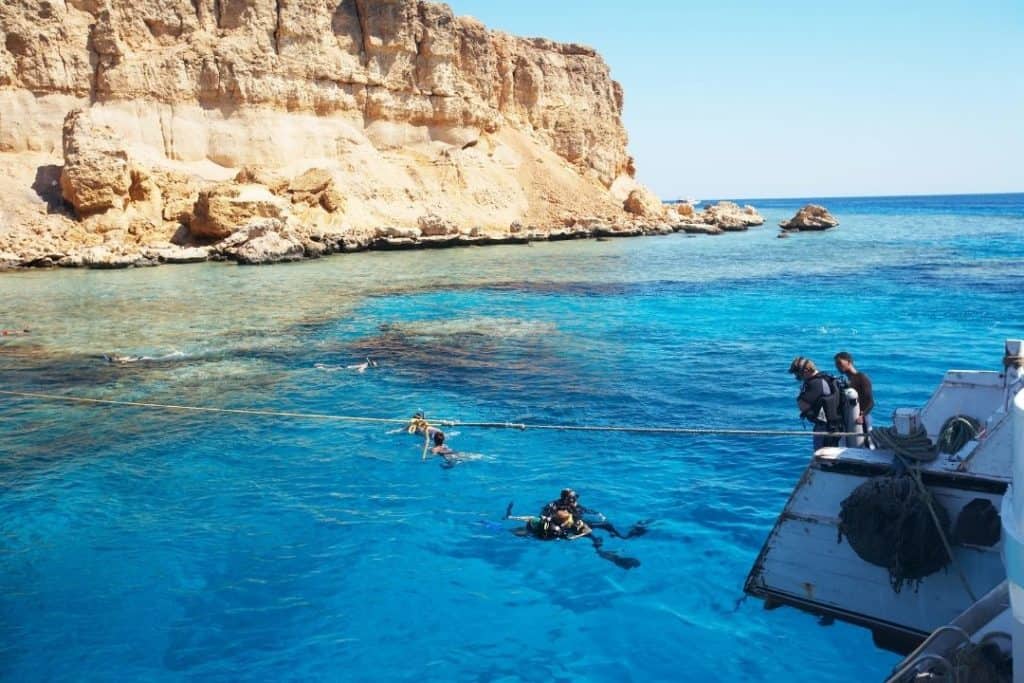
It is very important to stay hydrated before and during your dive day.
Many dive vacations are taken in tropical locations which may be warmer than what we are used too. We can easily become dehydrated due to additional sweating and changes in our activities.
The dry air from our scuba tanks can also decease our level of hydration. Among the symptoms of dehydration are feeling dizzy or lightheaded as well as feeling tired. Not a very welcome feeling while diving.
There is another very important concern why you should not scuba dive while dehydrated. Dehydration impacts the effectiveness of the blood.
Studies have shown that this has an impact on our risk of decompression sickness. The days leading up to a dive, take plenty of water and also between dives.
4: Do Not Dive If You Are Hung Over
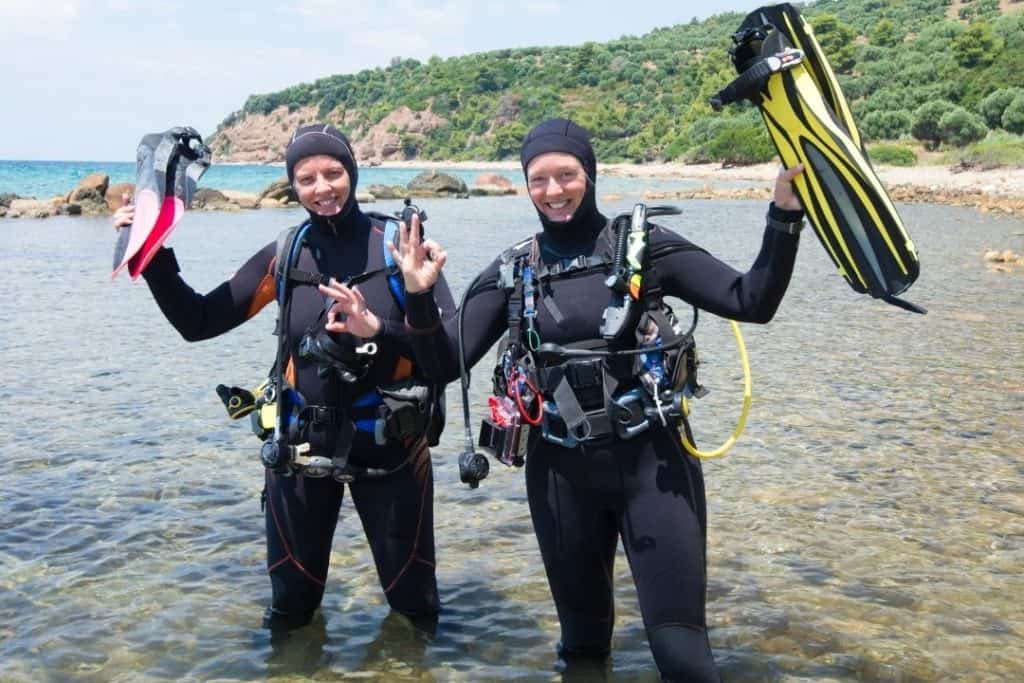
I understand, you are on vacation. You want to get out, enjoy life and cut loose a bit. Drinking may be a part of that.
This might lead to a hangover. Diving with a hangover or with alcohol still in your system from the night before is not something to do.
Dehydration is one of the effects of drinking too much alcohol, and we already discuss not scuba diving while dehydrated.
Still, look at these other symptoms of a hangover, How would you like diving with these?
- Fatigue and weakness
- Excessive thirst and dry mouth
- Headaches and muscle aches
- Nausea, vomiting or stomach pain
- Increased sensitivity to light and sound
- Dizziness or a sense of the room spinning
- Shakiness
- Decreased ability to concentrate
- Mood disturbances, such as depression, anxiety and irritability
- Rapid heartbeat
None of these symptoms will go away while diving, most will made the dive uncomfortable. A few such as the decrease ability to concentrate, nausea and weakness may even lead to serious situations.
You should also consider what your blood alcohol content may still be. It takes hours for your body to rid itself from alcohol, it is highly likely after a night of heavy drinking you are still intoxicated.
If heavy drinking is part of your dive vacation plan, schedule it for the nights before a non diving day.
5: Do Not Dive If You Are Unable To Clear Your Ears
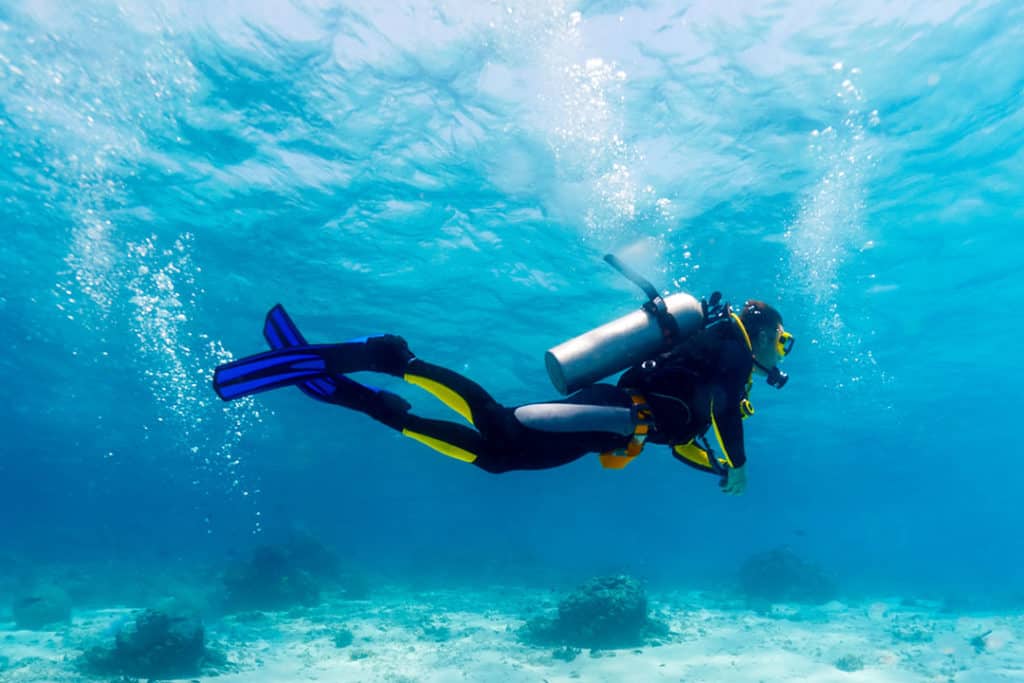
This is just common sense and it is drilled into us when we start diving. When we descend on a dive, the water pressure increases.
We often feel the increase pressure as the water presses against our ear drum.
We will start to feel pain when the pressure difference gets too great and the ear drums may even burst.
Our body will equalize the pressure inside the ear, however, we often need to assist. There are a few methods we can use to do this, and we refer to the process as clearing the ears.
Having a cold or a sinus congestion makes it very difficult or even impossible to clear your ears.
The tube leading from our sinus to the ears that allows equalization may become blocked. Divers will sometimes try to use a decongestant to clear the blockage.
This may work but there is a danger that it might wear off during the dive and you will not be able to equalize when returning to the surface resulting in a ruptured ear drum.
6: Do Not Do A Dive You Are Not Comfortable With.
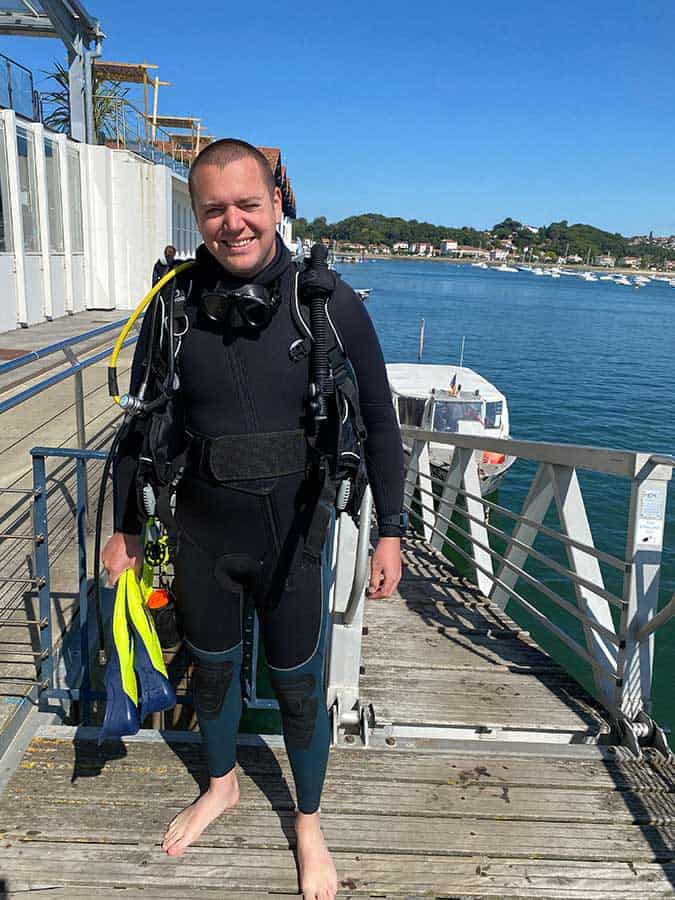
There is a saying you should live by. Any diver can cancel any dive for any reason. You should challenge yourself to improve your diving.
Overtime that will involve doing more difficult dives and diving in new diving environments. Those challenges should be a small step towards improvement, not a massive leap.
If you feel the upcoming dive is out of your comfort zone by too much a margin, cancel or abort the dive. You can try again when you are ready.
Other divers may encourage you to continue with the dive, that is human nature. You are the one that has to judge if you are ready.
Do not let the encouragement turn to peer pressure.
Conclusion
Scuba diving is a safe sport but it requires some common sense that will tell you to skip a dive.
Many divers will tell you of dives they should have skipped and regretted they did not. Feel free to comment on this post.
